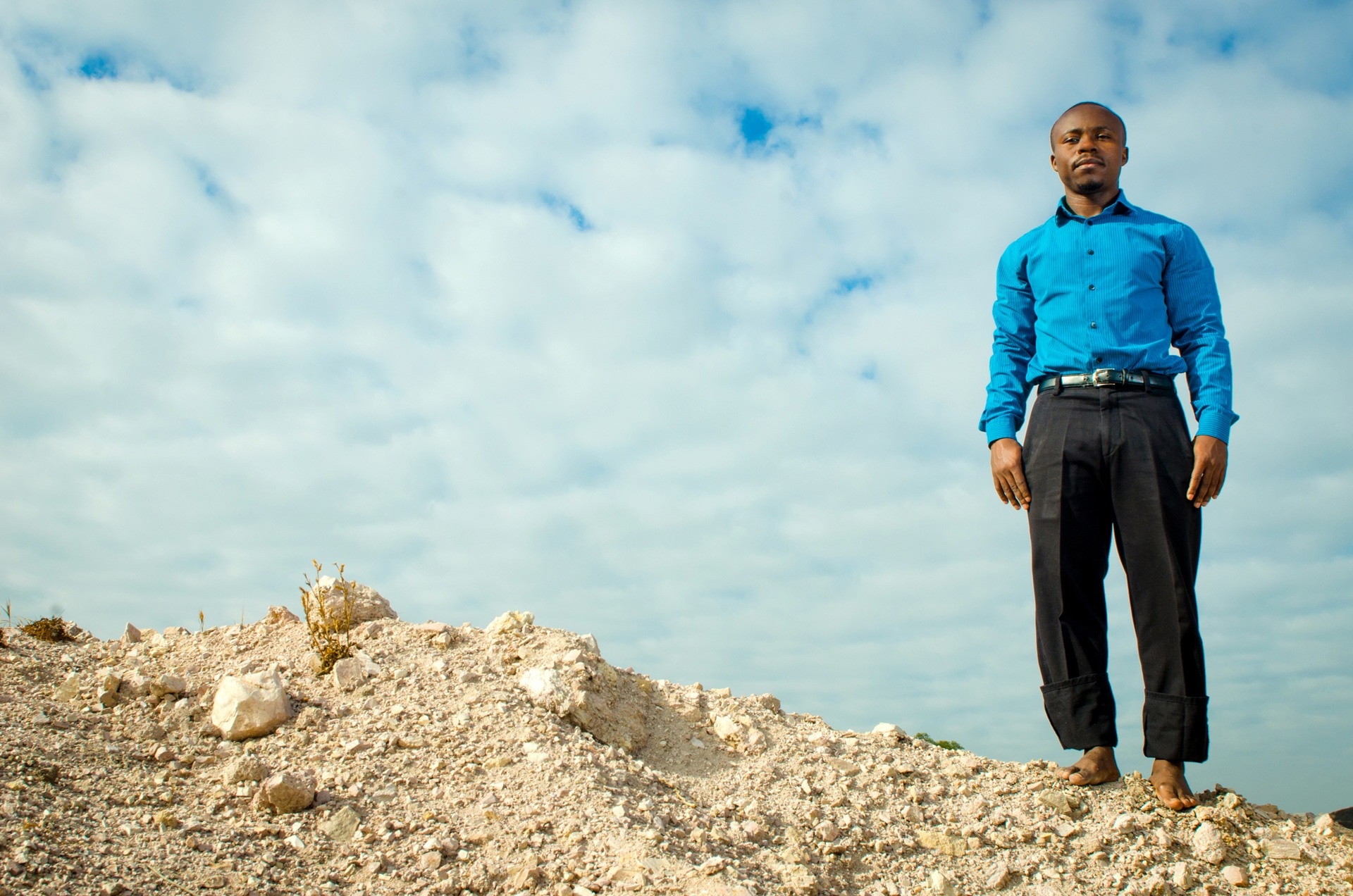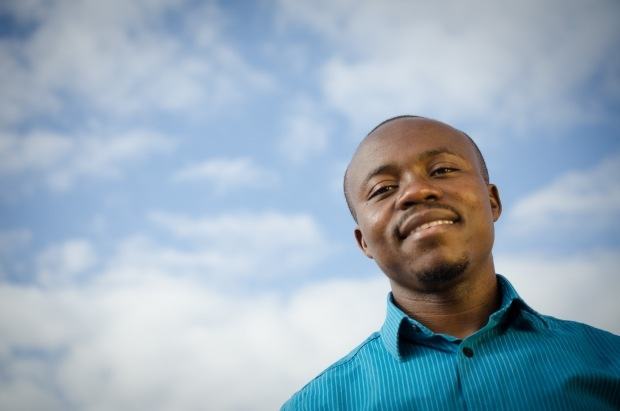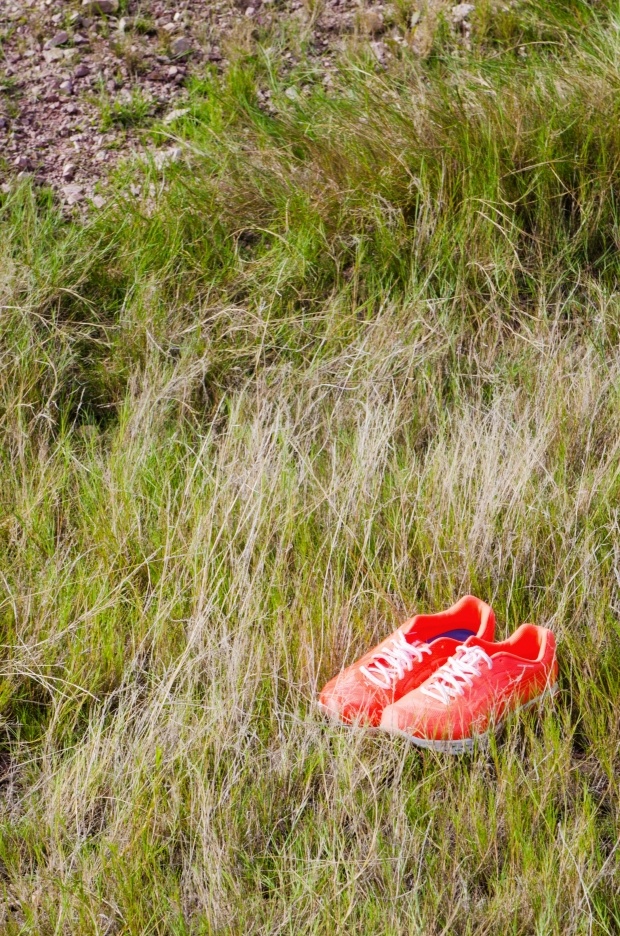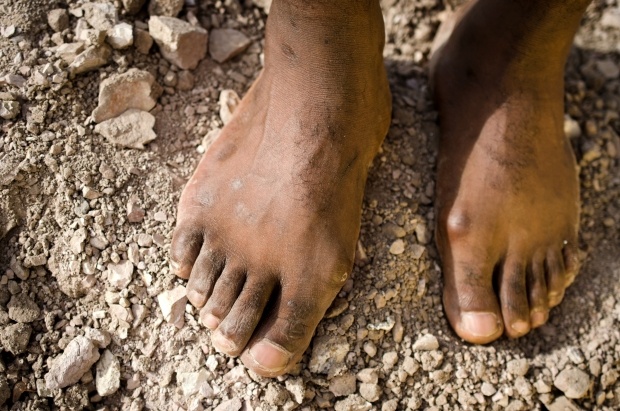Back to Basics
Stephen Fomba ’17 did not mind his daily trek to and from school as a child growing up, even if some days it meant walking as many as 20 miles under the blistering-hot sun. Like most living in Africa’s Eastern province of Sierra Leone, commuting by foot was and still is a way of life. But what he did mind was having to make these long trips over the burning, rocky ground completely barefoot.
December 20, 2014
Stephen Fomba ’17 did not mind his daily trek to and from school as a child growing up, even if some days it meant walking as many as 20 miles under the blistering-hot sun. Like most living in Africa’s Eastern Province of Sierra Leone, commuting by foot was and still is a way of life. But what he did mind was having to make these long trips over the burning, rocky ground completely barefoot.
Sharp stones, thorns and broken glass led to open sores under his feet. He remembers the bleeding and infections that resulted from his regular commute. Like many living in the West African Konjo Village, he picked up ailments and diseases, some he believes could have been prevented had he been able to afford a decent pair of shoes.
These are memories etched in Fomba’s mind as he recalls what his life was like some 20 years ago, before fleeing to the U.S. during the Sierra Leone Civil War for a chance at a better life.
Today, Fomba is a husband and father, and works as the program manager for the San Gabriel Valley Consortium on Homelessness, while also pursuing a doctorate in public administration (DPA) at the University of La Verne. He has worked hard to put himself through school so that he can make a difference in the lives of others. However, a piece of him remains in Sierra Leone, a nation that has been in the spotlight recently due to the devastating Ebola virus outbreak.
In October, the World Health Organization and Centers for Disease Control and Prevention (CDC) reported 4,493 Ebola deaths — with more than 2,950 cases and 930 deaths in Sierra Leone alone. Fomba found himself at the center of heartbreak and anxiousness.
“I have lost seven relatives to Ebola during this crisis,” Fomba said. “It could have been more had I not called my family and begged them to go to the treatment center.”
Fomba said that due to a lack of confidence in the government’s role in public health, many in his country do not seek help from treatment centers because they fear they will be poisoned. Thanks to his influence, many of his relatives were spared after seeking early treatment.
Ebola crept into his family after his uncle assisted a fallen motorcyclist. Not knowing the motorcyclist had the virus, Fomba’s uncle contracted Ebola and spread it to others in his family.
Until recently, many individuals were not aware that the Ebola virus is spread through blood or bodily fluid exchange with an infected individual.
“We have had a lot more infectious diseases that have been killing sub-Saharan Africans, including Sierra Leoneans, in large numbers every year. I mean, we’re talking about malaria, hepatitis, typhoid and, most commonly, cholera,” Fomba said. “These are diseases that kill people year-round, so, I asked myself, ‘Why are we just expecting these things? Where are these diseases coming from? And what can we do with the very little that we have to actually curb some of these problems?’”
Then it clicked. After recalling his own childhood and the living situation of his family back home, he realized this issue is not simply due to the lack of vaccinations and medications readily available, it is also the lack of basic human needs.
“Take malaria, for example. One easy solution to prevent this disease from spreading is to use mosquito nets. But how many Sierra Leoneans have mosquito nets? Very few. Because people are so poor that buying a mosquito net is not a priority,” Fomba said.
“This is a country where people are living on less than two dollars a day, if they can even get the two dollars. Too often, it’s not about buying a mosquito net, but instead, feeding their children.”
In the case of Ebola, Fomba knows that one necessity of the villagers is shoes. He knows, from his own experience, that if an infected person is walking barefoot, sweating and possibly bleeding from an open wound, others walking that same path can become infected.
In an August 2014 article that went viral on the Internet, Fomba shared his concern and his idea that something as basic as a pair of shoes could help curtail the Ebola outbreak. His article ran in The Washington Post and Time Magazine, as well as other outlets from around the world, sparking discussion on how access to basic human needs can help curb the outbreak of diseases.
“As a result of this article, I have received hundreds of contacts from people and organizations who want to partner with me,” Fomba said.
The support he is receiving could not have come at a more crucial time, as Fomba works to alleviate the spread of the Ebola virus by launching his own nonprofit organization, Basics for Humanity. “My goal is not to reinvent the wheel. I don’t want to do shoe drives if other people can do it better than I can. But I can be the center player to facilitate and connect these organizations to where the help is needed most,” Fomba said.
In his second year in La Verne’s DPA program, Fomba’s goals are ambitious and intentional. He plans to operate and grow his nonprofit while working and completing his doctorate, with a target graduation date of spring 2017. After graduation, his goal is to move with his family to Sierra Leone so he can put his degree into practice and, ultimately, influence the local public health operations.
“I think it’s only fair that someone like me go back to Sierra Leone and see how I can apply my La Verne education and actually work as a public administrator. There are a lot more challenges in Sierra Leone, so I believe that I will be able to make the most difference there,” Fomba said.
For more information on Basics for Humanity, please visit basics4humanity.org.



